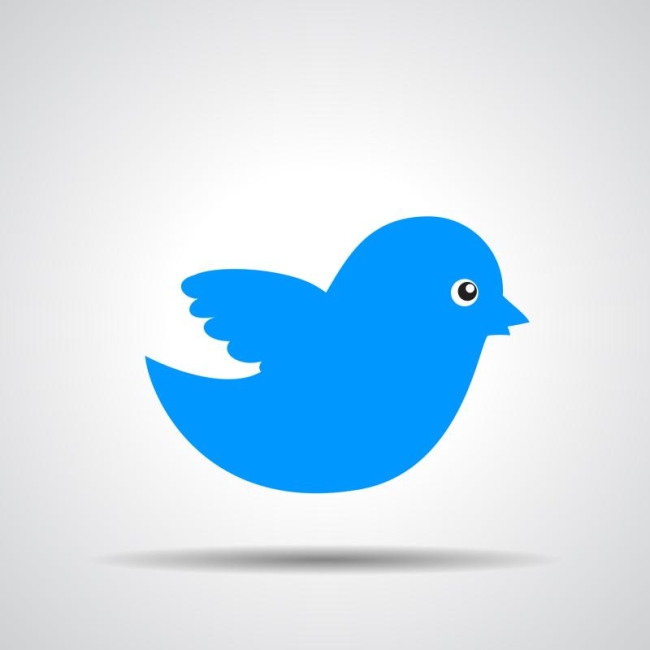You have /5 articles left.
Sign up for a free account or log in.

Sommersby/istock/getty images plus
In 2016, what seems like a lifetime ago, I wrote a piece for Inside Higher Ed called “The Academic Advantages of Twitter.” I stand by that piece, even as I just deactivated my Twitter account for good.
I originally lauded Twitter for its ability to increase one’s network of colleagues and help write and publish thoughts that could be harvested later for more formal scholarship. I also have had success using Twitter as a teaching tool and a way to interact creatively with students about course content. A selection of my tweets even ended up forming an aphoristic component of my 2015 book, The End of Airports.
What has changed over the course of the intervening years? A lot, most of which has been well recounted by others. As just one outstanding example, Tressie McMillan Cottom reflected brilliantly on Black Twitter’s emergence and its critical modalities—as well as its freedom to go elsewhere.
Even before the news of Elon Musk’s aggressive effort to take over the platform, I just felt beleaguered by the incessant demands of the website.
These demands are sometimes in-your-face and loud, like a mean reply or spat between people you follow—or worse, a subtweet that you can’t get out of your mind and mull over all night.
But other times, demands on the Twitter user are more subtle and abstract. It’s the news item or featured post that you only see for a second but that triggers something that nags at you all day.
Although academic Twitter still offers moments of earnest connection, research sharing and general collegial support, it has also become a charged and toxic place. It is very easy to stumble into a dispute or get doxed or hate-mailed for something you’ve tweeted, or to have to carefully monitor the results of something you published that you then promoted on Twitter.
Debates that might have previously played out over the course of a conference, or even over journal issues spread out over months or years, now happen in fiery minutes and smoldering hours, sometimes incinerating an entire evening. You don’t even have to be directly part of one of those skirmishes to feel the burn.
So for academics who may be reconsidering the utility of their Twitter accounts, here are some negative aspects to contemplate and questions to ask yourself.
- Distraction. Is Twitter distracting you from your reading, your writing, your course prep or your involvement with students? If so, pay attention to that. The distraction might be more cumulative and exponentially impactful than you even realize.
- Irritation. When you open up Twitter on your phone or desktop, do you feel annoyed by things you see within a few seconds? Does this irritation haunt you long after you’ve toggled away from the app or website? Being irritated unnecessarily is a major drain on other things you might be doing—and getting more satisfaction from.
- Intimidation. Do you find yourself intimidated by things your peers or colleagues post? Are you frequently overwhelmed with feelings of not achieving enough for your discipline or field, or not making enough headway on your own research program? Twitter excels at generating self-sabotaging sensations of inadequacy. It always seems more exciting out there, deep in the continuous flow of those ever-unfurling tweets …
- Anger. We’ve all been at a conference panel that made us upset or outright angry. But there’s nothing like cooling off or venting at the hotel bar with friends after a particularly nauseating talk or tense Q&A session. On Twitter, no such debriefing forum exists for processing—and letting go of—the vitriol that can burble up in an instant, unbidden.
- Jealousy. This is a tough one to admit. But it’s just so easy to see someone else’s accomplishment, book contract, award or fellowship announcement and feel somewhat sad inside—and, in fact, jealous. And that can be the case even when you’re simultaneously happy for them! Twitter has a way of incubating envy. It’s something baked into the form—like chocolate chunks melted into dough. (Don’t get me wrong—I like cookies, but not every day and all the time.) And that incubated envy is there for a pernicious reason: one day, you might get to be the one to inflict such feelings on others.
- Obligation. It can be elusive and ephemeral, but it’s the vague notion that you should like someone’s tweet, or retweet something, or follow someone … or, more complicatedly, reply to a DM. Then there’s the obligation to update everyone anytime anything happens: a publication, a podcast, a book review, a teaching epiphany. All these layers of obligatory interaction seem easy enough in theory but end up adding to the overall burden that Twitter insidiously, if silently, piles on its users.
- Noise. Speaking of silent, Twitter really isn’t. It’s an extremely cacophonous place, and the din exceeds the bounds of the website. The noise rings in your ears long after you’ve left Twitter, and even lures you back. It’s our modern siren song.
There are also matters of depression, anxiety and dread that Twitter feeds and feeds on—but those are other cans of worms.
Maybe I’m just showing my own thin skin—admitting my timidity and weakness in the face of what is, in truth, a mere digital juggernaut. Maybe I’m just making excuses for my own inability to keep up with the daily (much less nightly) onslaught of smart, meaningful, necessary tweets. Maybe I’m just revealing how hard I find it to set limits between my personal and professional lives.
Even so, I think there’s something real out there in the fabric of Twitter that’s worth resisting now.
I know that Twitter—along with social media more broadly—has been instrumental in making important political movements happen, and it has empowered people who have needed a voice or to amplify a cause. But I also think it’s fair to say that we have crossed a threshold and that the positive aspects of Twitter may have become outmoded, supplanted by the rampant ongoing rhetorical battles and posturing of the endless now. It’s a sometimes thrilling but mostly just exhausting place. Musk’s arrogant acquisition attempt has just pushed Twitter over the edge for me.
Academic work takes time. Teaching takes time. Creative projects take time. All this time needn’t be recorded or co-opted by an as-if monolithic website. Twitter takes a lot of time, too. Twitter literally takes our time.
I’ve realized I might value my scholarly, pedagogic and creative time differently if I just didn’t have to think about how it would play on Twitter and then attend to all that hyperperformative action. So I’ve been off Twitter now since April 28, and, so far, it’s been a great relief. I’ve seen things differently from the other side. But that’s another essay, for another time.








